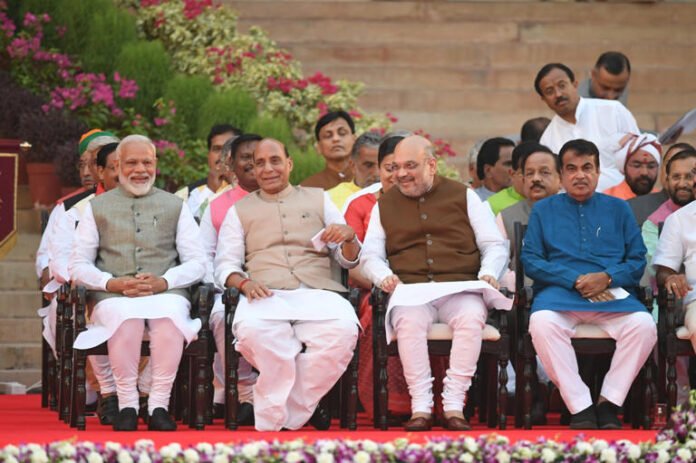The Bharatiya Janata Party (BJP) has revealed its list of star campaigners for the upcoming Delhi assembly elections, a move designed to make a significant impact in the highly competitive political landscape of the national capital. This strategic lineup includes some of the biggest names in Indian politics and entertainment, reflecting the party’s focus on both national influence and grassroots engagement.
Who Are the Star Campaigners?
The BJP’s campaign team reads like a who’s who of Indian leadership. At the forefront are:
- Prime Minister Narendra Modi: Known for his mass appeal, Modi’s presence brings unparalleled visibility to any campaign.
- Union Home Minister Amit Shah: A master strategist, Shah’s inclusion underscores the importance of ground-level mobilization.
- Defence Minister Rajnath Singh and BJP President JP Nadda: Both leaders bring credibility and experience, appealing to a wide voter base.
In addition, the campaign features prominent Union Ministers like Piyush Goyal, Nitin Gadkari, and Hardeep Singh Puri, alongside Chief Ministers from BJP-ruled states, including Yogi Adityanath (Uttar Pradesh) and Himanta Biswa Sarma (Assam).
What makes this campaign especially dynamic is the inclusion of celebrities like Smriti Irani, Hema Malini, and Bhojpuri stars Ravi Kishan and Manoj Tiwari. These figures are tasked with connecting emotionally with specific voter demographics, particularly Delhi’s Purvanchali community.
Why Does the Purvanchali Community Matter?
The Purvanchali population (migrants from eastern Uttar Pradesh and Bihar) accounts for nearly 40% of Delhi’s voters. This makes them a critical demographic in deciding the electoral outcome. Leaders like Manoj Tiwari and Dinesh Lal Yadav are being positioned to resonate with these voters by highlighting shared cultural ties and addressing their specific concerns.
The BJP’s focus on this group reflects a targeted approach to counter the influence of the Aam Aadmi Party (AAP), which has traditionally done well among Purvanchali voters.
The Context: Why Are These Elections Crucial?
Delhi’s elections, scheduled for February 5, 2025, with results on February 8, present a high-stakes battle. The BJP is looking to regain power in a state where it has faced consecutive defeats against the ruling AAP.
In previous elections, AAP leader Arvind Kejriwal leveraged his party’s focus on governance, education, and public services to outshine the BJP. However, the BJP is now sharpening its narrative by focusing on alleged governance lapses, corruption, and AAP’s unfulfilled promises.
What Issues Will BJP Campaign On?
- Development and Infrastructure: The BJP plans to highlight gaps in AAP’s record on basic services like water supply, electricity, and sanitation.
- Corruption Allegations: BJP leaders are expected to criticize AAP over alleged scandals, using this narrative to project themselves as a cleaner and more effective alternative.
- National Achievements: Leveraging Modi’s popularity, the BJP will link Delhi’s future to the central government’s successes in areas like infrastructure, defense, and economic reforms.
What Does This Mean for Voters?
For Delhi’s residents, the elections will be about choosing between three competing visions:
- AAP’s focus on grassroots governance and public welfare.
- BJP’s emphasis on national development and accountability.
- Congress’s bid to regain relevance with a more traditional approach to governance.
Explaining the BJP’s Strategy
The BJP is employing a multi-pronged strategy:
- Star Power: Big names like Modi and Shah aim to draw massive crowds and media attention.
- Targeted Outreach: Leaders like Manoj Tiwari focus on key voter groups such as Purvanchalis.
- Digital Push: Social media campaigns will amplify the messages of star campaigners to reach younger, urban voters.
- Ground-Level Coordination: Local party workers will focus on door-to-door campaigns to connect directly with voters and counter AAP’s strong grassroots presence.
Looking Ahead
The BJP’s deployment of its star campaigners reflects a high-stakes effort to wrest control of Delhi from the AAP. The next few weeks will see intense campaigning, with each party trying to dominate the narrative.
For voters, this means being presented with diverse viewpoints and promises — but ultimately, the decision will rest on who they believe can deliver a better future for Delhi.



